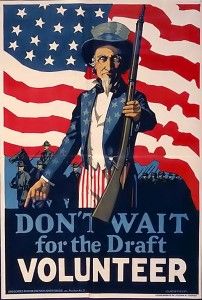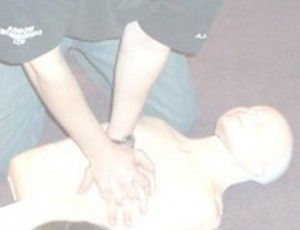The End of Volunteerism

In a Service Club, a Long Time Ago
I belong to a service club that has a somewhat unique officer arrangement. If you "go through the chairs," you're committing to a five-year stint. Three of the years require you to be at every weekly meeting, plus monthly board meetings. A fourth year requires you to take almost one week's vacation so you can run its major fundraiser, plus monthly board meetings. The year that you're president, you are also expected to attend regular meetings out of town, including one meeting in a far away place that takes up a long weekend. A friend of mine (and former club president) told me that, to do the presidency right, you should expect to spend twenty hours a week.
They asked me to go through the chairs eight years ago. At the time, I had five children at home, ages eight to newborn.
I chortled. I felt bad, but I did chortle.
I told them there was no way I could do it without risking a divorce and being unfair to my children. I also suggested that they amend their bylaws to make the chair program a little less daunting. At one point, I even offered to be the regular big fundraiser assistant, in order to lift that burden a bit, and I suggested that they eliminate two officer positions and spread those officers' weekly assignments among the membership, thereby reducing the chair rotation to three years.
They chortled back. With goodwill, but they did chortle.
This year they can't find anyone to start the chair process. No one is stepping up. Former officers are understandably frustrated. At times, I feel kind of bad, but then I just shrug: I warned 'em, I asked 'em to consider a change. For all I know, my changes are impossible to put into place (the chair system might be written into the international bylaws, which, I'm told, would require the intervention of Zeus to amend, given the magnitude of the changes), but that ain't my fault.
So we're kinda stymied, and I've been scratching my head a bit. Why aren't people stepping to the plate? I have my personal reasons for refusing to undertake the chairs: seven of 'em, to be exact. But what about everyone else?

The Big Two
I have no idea, and I'm not about to judge (goodness knows, I need a lot of generosity from others, so I can at least reciprocate). I'm also not about to engage in a Robert Putnam-type analysis, though I've skimmed through portions of his book and think he has valuable things to say:
Television, two-career families, suburban sprawl, generational changes in values--these and other changes in American society have meant that fewer and fewer of us find that the League of Women Voters, or the United Way, or the Shriners, or the monthly bridge club, or even a Sunday picnic with friends fits the way we have come to live. Our growing social-capital deficit threatens educational performance, safe neighborhoods, equitable tax collection, democratic responsiveness, everyday honesty, and even our health and happiness.
I suspect better home entertainment--TiVo, 100 cable channels, Internet, DVDs, iPods--is the main culprit, but I also think we need to look at the government's role.
When government handles something, individuals and social organizations are less likely to handle them. I've made this appoint a couple of times, often citing the authority of the great Albert Jay Nock.
State power comes at the price of social power. If the state will take care of something, then people won't. As social power collapses, so does society. This is Nock's best insight, and upon two minutes' reflection, is so obviously true that I'm kind of embarrassed I'd never articulated the thought before. For years I've lamented that the welfare state kills charity, but I never reached the larger point: an increasing state gradually kills all social endeavors. (You ever wonder why the social fabric of Russia is in complete tatters?)
Do we really think it's a coincidence that volunteerism shrunk in the wake of LBJ's Great Society?
If I had to rank the reasons volunteerism is almost dead, I'd rank better entertainment number 1 and leviathan government number 2.
The Minions
But there all sorts of smaller culprits. I can think of at least four societal changes that have an adverse impact on volunteerism:

1. Longer commute times (this doesn't apply to me, since I can walk to work in 15 minutes, but it applies to suburbia, and Putnam mentions it).
2. Double-income families don't have as much time to volunteer (Putnam mentions this, too).
3. Longer work days (does anybody work the 1970s stereotypical 9:00 to 5:00 with a thirty-minute lunch anymore?)
4. Children's activities have reached disturbing levels.
Of those four small culprits, I think the last one is the biggest. We've become obsessed with keeping our kids busy and competitive. When I was in little league, I'm guessing we played eight, maybe ten, games, plus we had a half-dozen practices. Now, the same little league has 16 games and three weeks of practice, plus an all-star season. A handful of the boys are also doing travel baseball, which, I'm told, features a 60-plus game schedule. On top of that, kids have basketball camps, football camps, band camps, advanced placement courses. It's a wonder the kids have enough time to take a smoke.
And all those kid activities, of course, sap the parents' time. If parents are spending 20 hours a week at their kids' sporting activities (my estimated outlay this week), how are they going to free up 20 hours to do the service club presidency?
They simply can't.

Resuscitating V
So what do I suggest?
For starters, get rid of the government. If government shrinks to nothing, people will have to rely on each other more. As they rely on each other more, they'll join more civic organizations. As those civic organizations strengthen, so will volunteerism.
But that's quixotic. Bush increased the size of government. Do we really expect Obama to shrink it?

I still love this line from Obama's inaugural address: The question isn't, 'is government too big?' The question is, 'does it work?' That's kinda like Michael Scott telling a complaining Dwight Schrute that a co-worker doesn't make more than him: their wages are just different. If wages are different, someone is making more. If government is big, it doesn't work as well . . . and society breaks down even further.
If you don't want to wait for the government to shrink and home entertainment to atrophy, you need to take matters into your own hands. Change your service clubs to fit the changing culture. For starters, don't rely on an officer system devised in the halcyon days of the thriving Jaycees. Change it: reduce the Stalinesque five-year commitment to two or three years. Ask volunteers to bite off smaller chunks. Arrange fundraisers that are "kid friendly" (I've volunteered my family to pick up trash more times than I can't count) so the projects aren't stealing even more of the shrinking family time slice of pie. Make the meetings multi-tasking friendly (heck if I know how, but everyone's multi-tasking, so if you can do it, you'll increase attendance; maybe you arrange programs that teach people little but useful skills, like how to do Facebook).
Despite change we can believe in, America isn't going to change anytime soon. The end of volunteerism is at hand. How is your group going to deal with it?
